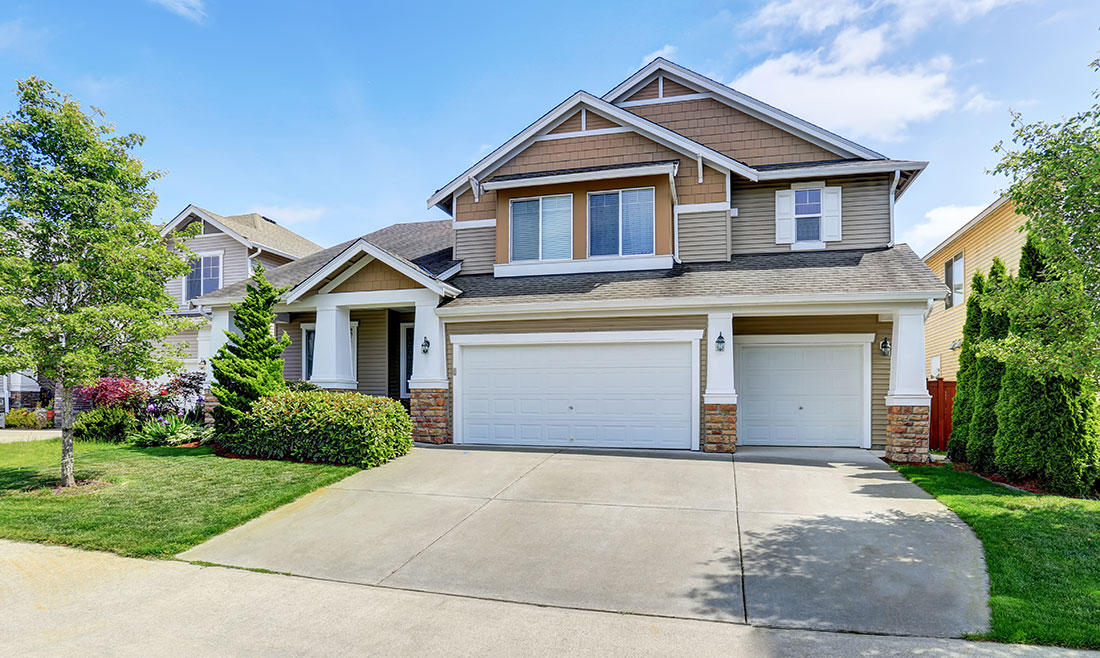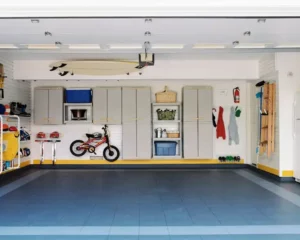9 Things You Need to Do When Buying a Home
If you’re a first time homebuyer, getting started with the buying process is overwhelming. You’re probably getting unwarranted advice from all angles and are still just trying to figure out what you want and what you can afford. No body said buying a home was an easy task, but it’s definitely worth it. Turning a house into a home is a wonderful feeling that will allow you to build the life you want. To avoid any major stressors, or regrets, along the way, here are 10 things you need to do when buying a home.
1. Anticipate Life Changes
When you buy a house, you need to anticipate future life changes and events. Don’t buy a house that perfectly fits your life today; buy a house that will fit the life you want to grow into. Purchasing a home is a huge commitment and you should take the time to think about what you want before signing any papers. In fact, it’s not uncommon for new homeowners to move out of their first home with a year because they realize that it doesn’t fit their goals or big-picture vision.
Look at each house and anticipate your life’s changes. Could you see yourself here for at least five years? If you plan to have kids, get married, switch jobs, or make a big move, find a house that will compliment your future and grow into it. This is much easier than buying a house that fits your life now and quickly growing out of it. When all else fails, buy a house that you know will substantially improve your life.
2. Consider Future Commitments
In line with anticipating life changes, you should always take into consideration any future commitments. If you’re not married, do you see yourself getting married soon? If so, remember that your house will be treated differently as an asset between married partners. We’re not saying that there will be any problems with your marriage, but you should make sure that your future commitments align with your current ones to ensure that you don’t lose a substantial investment in the case of a nasty divorce.
To make sure you take the necessary safeguards, consider getting a lawyer and creating an agreement regarding your house and other assets.
3. Look Past the Purchase Price
When you see a listing, it will have a nice, transparent number attached. That is the purchase price, but it’s only one piece of the puzzle. You’ll also need to pay for homeowner’s insurance, homeowner association fees, and additional taxes. Look past the purchase price when shopping for homes. You never know, you might actually save money in the long run if you buy a house with a higher listing price and lower monthly or yearly taxes.
We recommend putting down about 20% for a down payment to avoid paying premiums, expediting the buying process, and reducing your overall financial risk.
4. Consider Any and All Debts Owed
If you have any debts owed, you need to take them into consideration when buying a house. Student loans, while frustrating, are considered real debt and will have an affect on your buying process. Due to the changes in lending laws that followed the housing crisis, homebuyers with student loan debt will now have to pay a percentage of the outstanding balance when buying a house, even if the student loan has been deferred. Make sure to do your research on how your student loan debt affects the home buying process to ensure that you’re prepared.
5. Buy Within Your Budget
Create a budget for what you can afford to spend on a house. Do this before you go through any sort of loan estimate or pre-approval process. Do not use the price brackets that your mortgage company says you can afford. If you have good credit you could easily get approved for a larger mortgage than your actual budget. Just because your finances look good on paper doesn’t mean you should take out the biggest mortgage possible. If you know you can’t afford it, don’t buy a house solely based on your pre-approval price. This is not a good financial decision, especially if you have any other outstanding debts—student loans, car payments, etc.
You never know what will happen in your life or the economy that could change your income levels. As a rule of thumb, most professionals suggest that you should take about 25-33% of your gross income and create a budget based on those numbers. To better understand the big picture of finances when buying a house, talk to your mortgage broker or financial advisor. Once you set a budget, stick to it.
At the end of the day, if the buyer won’t budget on their price, you need to be willing to walk away. Buying a house too fast can be dangerous, so take your time and make sure you find the perfect fit.
6. Read the Contracts Thoroughly
You’ll have to deal with a lot of contracts throughout this process. Don’t simply sign where they’ve put a sticker. You need to read the contracts thoroughly to make sure you understand everything before signing. If you have questions, make sure you talk to your realtor and get any clarifications needed. Don’t be afraid to ask questions.
7. Look Beyond the Surface Level
When you start the home search, you’ll notice the surface level details first. However, surface level cosmetic issues are usually cheap to fix and don’t necessarily translate to a poor quality home. Instead, look at the more expensive qualities that you don’t like. Is the kitchen or bathroom too outdated for you? Do you anticipate remodeling within the first year of living there? Is that in your budget? The cost of supplies for remodeling isn’t usually all too expensive, but laborers are. If you’re not looking for a fixer-upper, look beyond the surface level.
To make sure you know what you’re getting into, you should have a home inspection prior to any finalizations. A home inspection will tell you whether or not there are any major, or minor, hidden damages. Mold, termites, and poor structural stability should be addressed with the seller if found. You can use these as a negotiating factor for the price or you can request that they fix any problems before you move forward with the buy. Weigh your options and do something that works for you.
If you want to take on a fixer-upper home as a project, pay attention to the overall structure and layout of the house rather than the details of each room. If you have a creative vision, the right budget, and a little determination, you’ll be able to turn an average home into your dream home. Just make sure you plan financially for unexpected surprises… they always seem to happen.
8. Don’t Focus on the Mortgage Interest Deduction
Don’t think too much about your tax deductions when buying a home. Yes, mortgage interest deductions will allow you to keep more of your income in your pocket at the end of the year, but that shouldn’t affect your budget. You won’t save enough money to make a huge difference and justify over-spending on a home. Again, make a budget and stick to it. When you use your deductions come tax time, just see it as an added benefit.
Additionally, to avoid any substantial increases in interest rates, stick to a fixed-rate mortgage. A fixed-rate mortgage will take whatever your interest rate is at the time of purchase and lock it in for X amount of years—typically 30 years or 15 years. Yes, you’ll have higher monthly payments, but in the long run you’ll pay off your home faster and with fewer unexpected roadblocks.
9. Find a Trusted Realtor
Arguably, one of the most important things you need to do when buying a home is to find a trusted realtor. Remember that the seller is the one who will be paying a realtor commission on the home, so hiring a realtor won’t increase the home’s actual price. Trusted realtors will work with you to find you a home that you love that is in your budget all while protecting your interests and acting as an educated resource throughout the buying process.
If you’re looking for a realtor you can trust, First Star Realty is here. We’re committed to providing five star realtor services to all of Northwest Arkansas and work to make the home buying process as simple as possible. First Star Realty will work with you throughout the entire buying process so you don’t have to stress. Our clients always come first, so if you’re ready to buy, or sell, a home, contact us today. Our team of highly seasoned real estate professionals is dedicated to providing exceptional, personalized service to all of our clients. Call us today at 479-267-1600 or fill out a contact form on our website.



